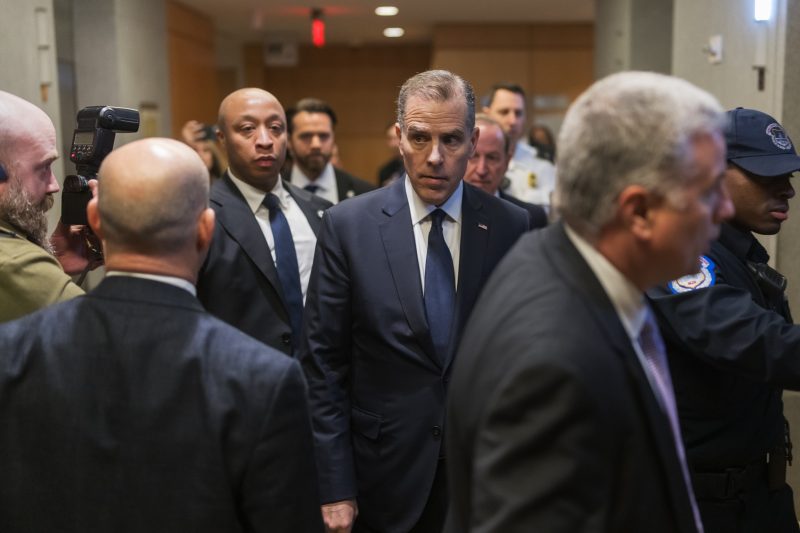In recent times, the political landscape has been ablaze with controversies surrounding the business dealings of Hunter Biden, son of President Joe Biden. The unfolding drama has not only captured the attention of the nation but has also raised pertinent questions about the interplay between politics and personal interests. During his testimony, Hunter Biden vehemently disputed claims that his father had benefited from his business activities, setting the stage for a contentious debate that threatens to further polarize the already divided political arena.
One of the key issues at the center of the controversy is the alleged influence that Hunter Biden’s business dealings may have had on his father’s political decisions. Critics have pointed to instances where Hunter Biden was involved in lucrative business ventures in foreign countries, such as Ukraine and China, while his father was serving as Vice President. They argue that this creates a conflict of interest and raises questions about whether political favors were exchanged for financial gain.
In response to these allegations, Hunter Biden categorically denied that his father had ever benefited from his business activities. He insisted that he operated independently and that his father’s political career had no bearing on his personal business decisions. Hunter Biden maintained that he conducted his business affairs ethically and was not involved in any inappropriate dealings that could have compromised his father or the integrity of the political office he held.
The testimony provided by Hunter Biden has further fueled the debate over the role of family members of politicians in the business world. While it is not uncommon for the relatives of public figures to engage in business ventures, the potential for conflicts of interest and allegations of corruption loom large. The case of Hunter Biden serves as a stark reminder of the complexities that arise when family ties intersect with politics and business, raising important questions about transparency, accountability, and the need for stringent ethical standards.
As the controversy surrounding Hunter Biden’s business dealings continues to unravel, it remains to be seen how it will impact the political landscape and the perception of the Biden administration. The testimony provided by Hunter Biden has added a new layer of complexity to an already contentious issue, highlighting the challenges that arise when personal and political interests collide. In the coming months, it is likely that the discourse surrounding the Biden family’s business activities will persist, shaping public opinion and influencing the course of political events.
In conclusion, the testimony of Hunter Biden disputing claims that his father benefited from his business ventures has ignited a fierce debate about the intersection of family, politics, and business. The controversy underscores the need for greater scrutiny and transparency in the dealings of public figures and their relatives, as well as the importance of upholding ethical standards in the political arena. As the drama unfolds, the nation watches with bated breath, awaiting the repercussions and ramifications of this high-stakes political saga.



























